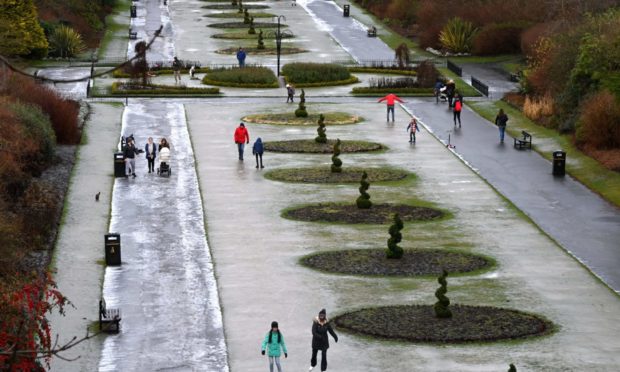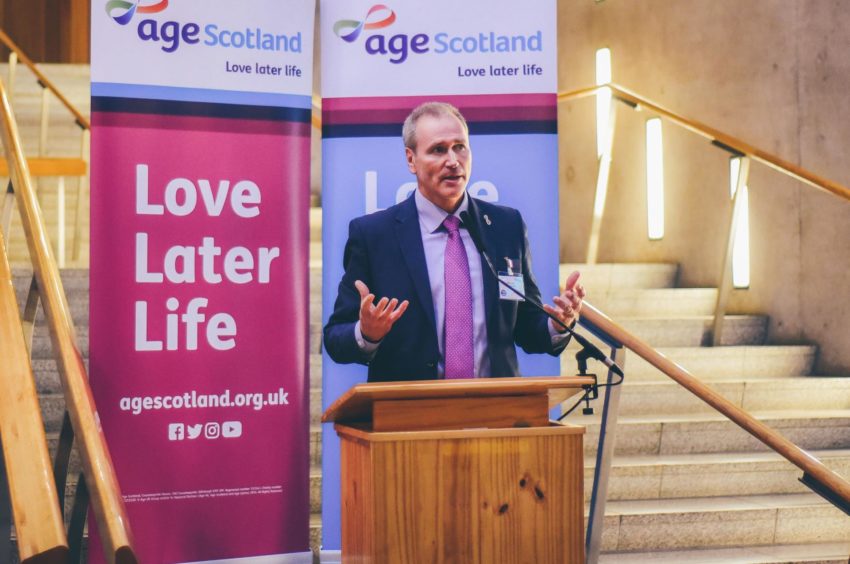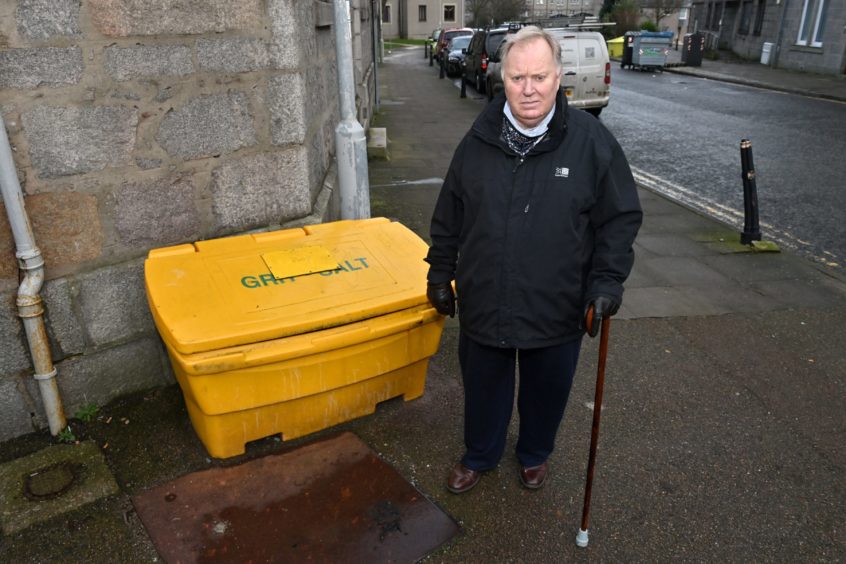Long nights, treacherously icy pavements, freezing temperatures and feeling “trapped” will make this winter lockdown “hellish” for some of the most vulnerable in society, it is feared.
Charities are fighting to make sure there is hope but concerns have been raised by a number of organisations for pensioners, the disabled and those struggling with mental health issues.
They worry those groups and many others across Scotland will face significant challenges brought about by the return of “stay at home” restrictions during the bitterly cold and dark month of January.
Scottish residents are only to leave home for essential purposes like shopping or exercise and can only meet up with one person from one other household at a time outside under the current restrictions.
However, for many people with mobility issues, frozen pavements and black ice can leave them feeling housebound, according to the charities Age Scotland and the north-east children’s charity Charlie House, which caters to youngsters with complex disabilities and life-limiting conditions.
Higher risks of falls
Brian Sloan, the chief executive of Age Scotland said the charity has been working tirelessly throughout winter to reach out to older people, from delivering meals and home-baking to running online groups.
He said: “While we understand why tighter restrictions are necessary, they are an especially bitter pill to swallow for older and vulnerable people living alone.
“Combined with this month’s icy weather, they’re likely to exacerbate feelings of loneliness and the associated toll on mental and physical health.
“Last spring and summer, many people looked forward to a daily stroll to keep their spirits up, or meeting family and friends outdoors when it was safe to do so.
“But dark days and treacherous conditions make this much more difficult, especially for older people at higher risk of falls.”
Icy conditions to continue
In Aberdeen, the city council has warned icy conditions on roads and pavements are likely to continue this week, despite gritting teams being out at full capacity.
A spokeswoman for the council said that over the past 10 days, a constant freezing and thawing effect across the north-east, coupled with rain falling and freezing on cold road surfaces, before melting and washing away previously-laid salt, has caused major issues.
In the past fortnight, the council’s efforts have accounted for more than 50% of the total salt used last winter.
Leigh Ryrie, children and family support manager at Charlie House, said the charity will continue to be available for families in need during the winter lockdown.
She said: “When shielding restrictions were lifted in the warmer months last year many families could venture out into their own gardens or go for short walks, but the cold winter temperatures just don’t allow that due to their child’s complex conditions, although if wrapped up warm, this is a different sensory experience during the winter months for some.
“Couple that with ice and snow underfoot for parent and carers trying to manoeuvre wheelchairs, walking frames etcetera, something which should be enjoyable and accessible becomes an impossibility, leading to lots of time indoors and isolation.”
‘You feel trapped’
Aberdeen City Councillor Bill Cormie said he felt the frustration this week of not being able to get out due to icy pavements in the city centre.
He said: “During this new lockdown, fresh and exercise are probably the most important things to keep your sanity intact and your body fit, for everyone from youngsters out running to older folk out for a walk.
“I myself try to go around the parks every day, but there was one day I could barely get out my front door because it was so slippery.
“The mental strain on people must be really hellish.
“You feel trapped. You’re basically housebound and scared to go out because you’re scared you could fall and break your neck.”
The Met Office has issued the latest in a series of new yellow weather warnings for ice, for the north-east.
Help is at hand for anyone struggling with the new restrictions
Winter is typically a troubling time for those with mental health issues with its few hours of sunlight and bleak weather and the new restrictions on the public will exacerbate problems, it is feared.
But organisations, including the charity Mental Health Aberdeen (MHA) and the Grampian Psychological Resilience Hub (GPRH), run by NHS Grampian, will continue to be there for people feeling low or struggling with the pandemic and lockdown.
Dr Simon Lloyd, a consultant clinical psychologist and joint lead of the GPRH, said: “The shorter days and colder days will make people’s usual coping strategies less available to them, on top of the limitations in place due to the restrictions.
“The hub is based on the principles of psychological first-aid, so we’re not offering therapy as such, we offer one to three telephone sessions which are sign-posted to suitable clinicians, depending on how people score on standard questionnaires.
“Routine is important, keep up a variety of activities during the day, social contact is important too, as is exercise whether outdoors or indoors, as well as keeping a sleep routine in place.”
Astrid Whyte, chief executive of MHA, added: “Winter is challenging for people who already suffer anxiety or depression because of the long dark nights, generally people tend to feel a bit more run down, and there’s a physical impact from less sunshine.
“People are missing their gyms and are having to rely on exercise outside.
“Our counselling will continue online and via the telephone and we will be opening a helpline again because this is going to be a very tough time for a lot of people.”



